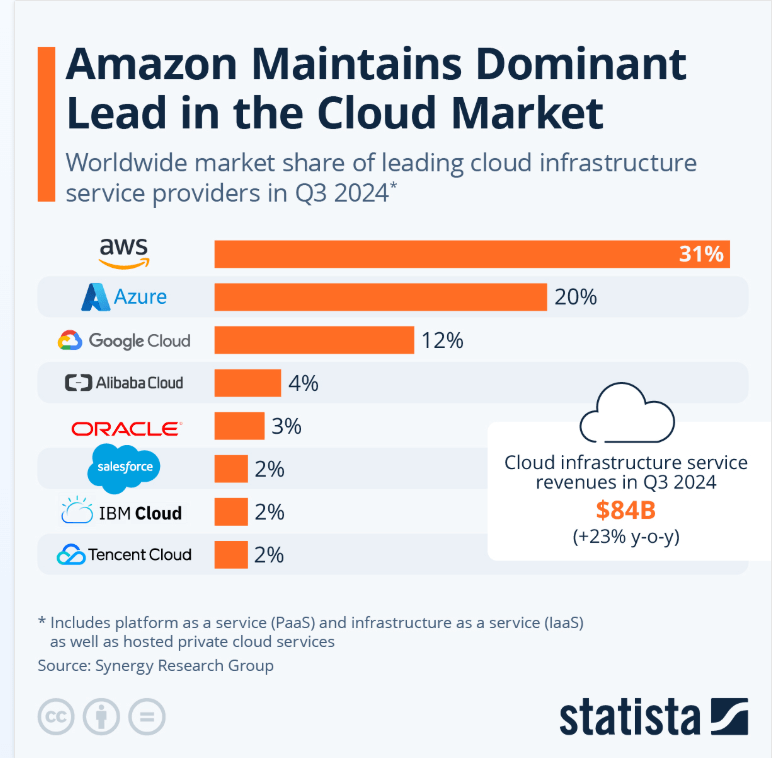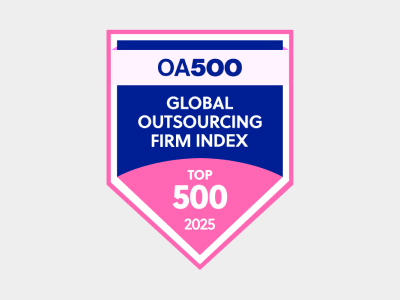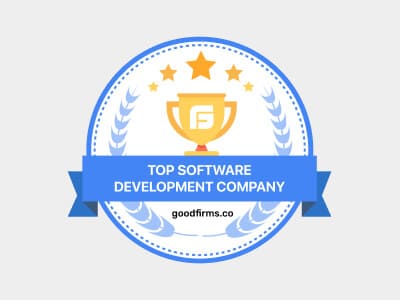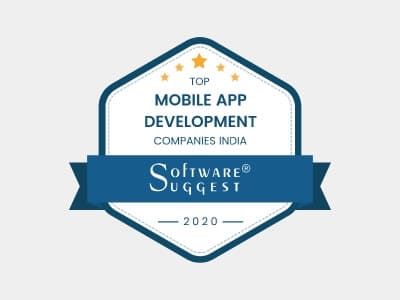The cloud computing market is a competitive space with three major players dominating: Amazon Web Services (AWS), Microsoft Azure, and Google Cloud Platform (GCP). Each cloud service provider offers a wide range of services and features, making it challenging to determine the best cloud provider for your specific needs.
This blog post comprehensively compares AWS vs Azure vs GCP in 2026, examining their strengths and weaknesses to help you make an informed decision.
Struggling to navigate cloud options and need help choosing the right platform for your business goals?
Understanding Cloud Service Providers
Cloud service providers offer a variety of computing services over the Internet, including servers, storage, databases, cloud networking, software, analytics, and intelligence. Instead of owning and maintaining physical data centers and servers, you can access technology services, such as computing power, storage, and databases, on an as-needed basis from a cloud service provider. This allows for greater flexibility, scalability, and cost efficiency.
Understanding the Basics: AWS vs Azure vs GCP
Amazon Web Services (AWS)
AWS is the pioneer of cloud computing and remains the largest and most widely used cloud platform. Founded in 2006 by Amazon, AWS cloud services have become the go-to solution for businesses of all sizes, especially those implementing large-scale DevOps Cloud Services that require automation, flexible compute options, and global availability. With an extensive range of services, AWS offers computing power, storage, and a variety of machine learning and data analytics tools. AWS boasts the highest number of global data centers, ensuring its ability to provide services across multiple regions.
Some core features of AWS include:
- Elastic Compute Cloud (EC2) for scalable computing capacity.
- Simple Storage Service (S3) for object storage.
- Lambda for serverless computing.
- Amazon RDS for managed database services.
- AWS Machine Learning tools and AI services.
Microsoft Azure
The Azure cloud platform, developed by Microsoft, has made a significant impact in the cloud market. Known for its strong enterprise presence, Azure is widely used by organizations already relying on Microsoft technologies. Integration with existing Microsoft software and products, like Windows Server, SQL Server, and Active Directory, makes Azure a compelling choice for businesses already in the Microsoft ecosystem.
Key features of Azure include:
- Azure Virtual Machines for scalable compute resources.
- Azure Blob Storage for object storage.
- Azure Kubernetes Service for container management.
- Azure Active Directory for identity and access management.
- Azure Cognitive Services for AI and machine learning.
Google Cloud Platform (GCP)
GCP, developed by Google, has emerged as a strong competitor in the cloud space, particularly for businesses and developers focused on data analytics, machine learning, and big data processing. Google’s expertise in data management and AI tools sets GCP apart. Although it doesn’t match the scale of AWS or Azure, GCP continues to innovate in areas like container orchestration with Kubernetes and serverless computing.
Key features of GCP include:
- Google Compute Engine for virtual machines.
- Google Cloud Storage for scalable and secure storage.
- Google Kubernetes Engine (GKE) for container orchestration.
- BigQuery for data analytics.
- TensorFlow and other AI/ML tools for machine learning.
Want to stay ahead in tech and optimize your cloud strategy for 2026 and beyond?
AWS vs Azure vs GCP: A Feature-Based Comparison
Each cloud service provider here has its own pros and cons. However, they have been in the top three with significant market share all over the world for years. Statista, the research giant company, showcases AWS, Azure, GCP, and a few more as the leaders in providing cloud infrastructure providers to all industry verticals. Amazon finishes at the top position:

Source: Statista on Major Cloud Infrastructure Service Providers
Let us now compare the top three cloud service providers based on essential factors such as cost, performance, global reach, and security.
Pricing and Cost Management
Pricing is a significant factor in choosing a cloud service provider. All three platforms offer pay-as-you-go pricing models, but their cost structures can vary.
- AWS Pricing: AWS uses a complex pricing model with multiple tiers and a wide variety of pricing options based on usage, service type, and contract terms. For businesses with highly variable workloads, AWS offers the flexibility to scale services up or down efficiently, but this can lead to unpredictable costs if not managed carefully.
- Azure Pricing: Azure’s pricing model is similar to AWS, but many businesses find Azure to be more cost-effective for enterprises already using Microsoft software. Azure also offers hybrid pricing models, which can be advantageous for businesses with on-premises workloads.
- GCP Pricing: GCP pricing tends to be more transparent and affordable in some areas compared to AWS and Azure, particularly for compute resources. Google also offers significant discounts for sustained usage, making it an appealing option for long-term, predictable workloads.
Performance and Global Reach
The performance of cloud platforms depends on various factors such as compute power, storage speed, and availability zones.
- AWS: AWS leads the industry in terms of global coverage, with more availability zones than any other provider. AWS provides faster data transfer and lower latency due to its expansive global network of data centers.
- Azure: Microsoft Azure operates in over 60 regions worldwide and is often the preferred choice for businesses looking for a strong presence in specific locations. Its integration with Microsoft’s existing infrastructure also helps with performance optimization for users relying on Microsoft technologies.
- GCP: While GCP lags behind AWS and Azure in terms of data center reach, it stands out for its superior performance in data-heavy applications like machine learning and big data analytics. Google’s global network infrastructure ensures high-speed data transfers, particularly for applications relying on large datasets.
Security and Compliance
Security is a top priority for businesses when selecting a cloud service provider. All three platforms offer robust security measures, but there are differences in their offerings.
- AWS: AWS has a strong security framework, offering tools like AWS Identity and Access Management (IAM), multi-factor authentication (MFA), and encryption options. AWS is compliant with a wide range of industry standards and regulations, such as HIPAA, GDPR, and SOC 2.
- Azure: Microsoft Azure offers enterprise-grade security, with features such as Azure Security Center and Azure Sentinel for threat detection and management. Its deep integration with Microsoft services also enhances security for businesses using Azure’s cloud-based services.
- GCP: Google Cloud Platform emphasizes security and provides tools like Google Cloud Identity, Cloud Security Command Center, and advanced encryption capabilities. GCP has a reputation for high-level security in areas such as machine learning and AI.
Specialized Services: Choosing the Best Cloud Provider 2026
When considering which cloud service provider is the best choice for your business in 2026, it is essential to look at specialized offerings and niche capabilities.
AWS Specialized Services
- Machine Learning and AI: AWS offers a broad range of machine learning tools, including SageMaker for building, training, and deploying machine learning models. It also provides a deep set of AI services, from speech recognition to natural language processing.
- IoT: AWS provides robust tools for IoT solutions, such as AWS IoT Core, which helps connect and manage Internet of Things devices securely.
Azure Specialized Services
- Hybrid Cloud: Azure is known for its hybrid cloud solutions, offering services like Azure Stack that allow businesses to run workloads on-premises while seamlessly integrating with Azure’s cloud services. This feature is ideal for companies that require on-premises infrastructure for certain workloads but still want the benefits of cloud computing.
- Enterprise Integration: Azure excels in integrating with Microsoft-based enterprise solutions, making it ideal for businesses that rely on Microsoft’s ecosystem for productivity, security, and operations.
GCP Specialized Services
- Big Data and Analytics: GCP has emerged as the leader in big data solutions, with tools like BigQuery, which allows businesses to perform large-scale data analysis at speed. Google Cloud’s focus on analytics and data processing makes it the go-to choice for data-driven applications.
- AI and ML: Google has advanced AI and machine learning tools, such as TensorFlow and AutoML, making it an excellent choice for businesses building AI-powered solutions.
Summarizing Table: AWS Vs. Azure Vs. GCP
Here’s a table comparing AWS, Azure, and GCP across key features:
| Feature | AWS | Azure | GCP |
| Market Position | Largest market share, first mover advantage | Strong enterprise focus, growing rapidly | Strong in data analytics and innovation |
| Compute Services | EC2, Lambda, ECS, EKS | Virtual Machines, Functions, AKS | Compute Engine, GKE, Cloud Functions |
| Storage Services | S3, EBS, Glacier | Blob Storage, Disk Storage, Archive Storage | Cloud Storage, Persistent Disk, Cloud Archive Storage |
| Database Services | RDS, DynamoDB, Redshift | SQL Database, Cosmos DB, Database for PostgreSQL | Cloud SQL, Cloud Spanner, Cloud Bigtable |
| Networking Services | VPC, Route 53, Direct Connect | Virtual Network, DNS, ExpressRoute | VPC, Cloud DNS, Cloud Interconnect |
| Big Data & Analytics | EMR, Kinesis, Athena | HDInsight, Databricks, Synapse Analytics | BigQuery, Dataflow, Dataproc |
| Strengths | Mature platform, global reach, strong IaaS, large community | Hybrid cloud capabilities, Microsoft integration, enterprise security | Innovation, data analytics, competitive pricing, Kubernetes expertise |
| Weaknesses | Complex pricing, less focus on hybrid cloud | Less mature than AWS, complex interface, potential vendor lock-in | Smaller market share, less mature than AWS/Azure, complex interface |
Final Take: AWS vs Azure vs GCP for Your Business
Choosing the best cloud provider depends heavily on the specific needs and requirements of your business. Here’s a general guideline for businesses in 2026:
- AWS: Ideal for businesses that require the most extensive global infrastructure, scalability, and flexibility. AWS excels in computing resources, storage, and machine learning services.
- Azure: Best suited for enterprises already invested in Microsoft technologies or those needing strong hybrid cloud solutions. Azure offers seamless integration with Microsoft-based services and excellent security features.
- GCP: A great choice for businesses focused on data-heavy applications, big data analytics, and machine learning. Google Cloud is increasingly popular among developers building advanced data analytics and AI solutions.
Conclusion
The cloud service provider comparison between AWS, Azure, and GCP in 2026 shows that each platform offers unique strengths. AWS remains the leader in terms of services, scalability, and global reach, while Azure is ideal for enterprises using Microsoft products. On the other hand, GCP excels in data analytics and machine learning capabilities, making it a preferred choice for data-driven businesses.
As the cloud computing space continues to evolve, choosing the right provider depends on your company’s needs, technical requirements, and long-term strategic goals. Whether AWS, Azure, or GCP, the best cloud provider in 2026 will be the one that aligns best with your business objectives. WeblineIndia is a frontrunner in providing professional cloud consultancy and DevOps services for your business. Contact us and we shall guide you for what is the best and most suitable to your budget and business goals.
Social Hashtags
#CloudProvider2026 #AWSvsAzurevsGCP #CloudSolutions #CloudConsulting #BusinessCloudStrategy #CloudForBusiness #CloudComparison #TechForBusiness #WeblineIndia
Unsure if AWS, Azure, or GCP is right for your business needs and future growth?
Frequently Asked Questions
Testimonials: Hear It Straight From Our Global Clients
Our development processes delivers dynamic solutions to tackle business challenges, optimize costs, and drive digital transformation. Expert-backed solutions enhance client retention and online presence, with proven success stories highlighting real-world problem-solving through innovative applications. Our esteemed Worldwide clients just experienced it.
Awards and Recognitions
While delighted clients are our greatest motivation, industry recognition holds significant value. WeblineIndia has consistently led in technology, with awards and accolades reaffirming our excellence.

OA500 Global Outsourcing Firms 2025, by Outsource Accelerator

Top Software Development Company, by GoodFirms

BEST FINTECH PRODUCT SOLUTION COMPANY - 2022, by GESIA

Awarded as - TOP APP DEVELOPMENT COMPANY IN INDIA of the YEAR 2020, by SoftwareSuggest